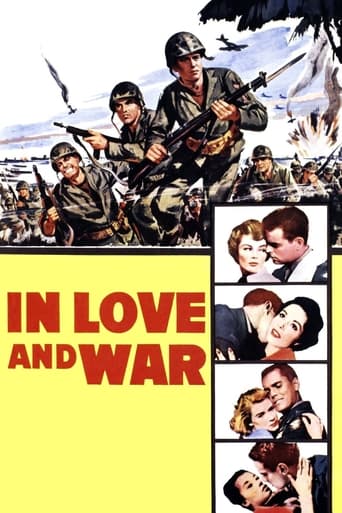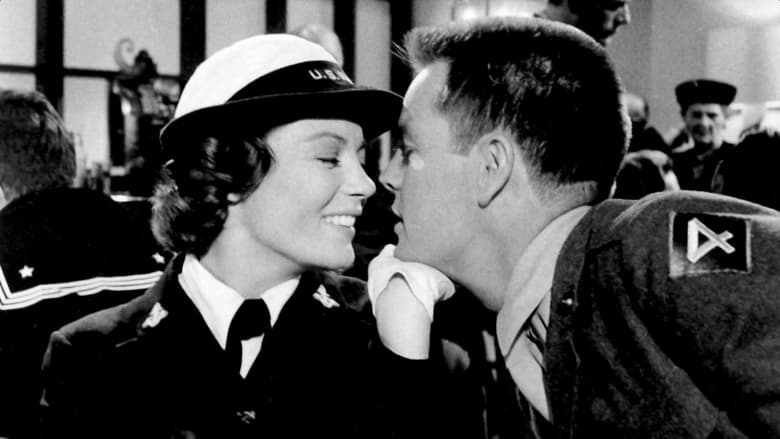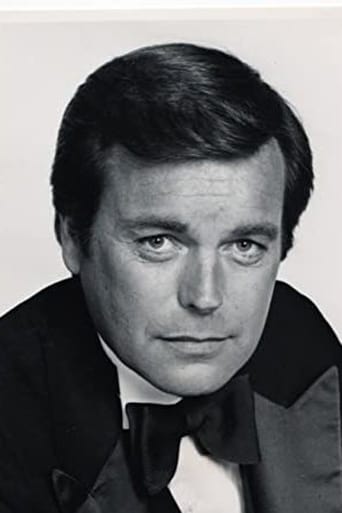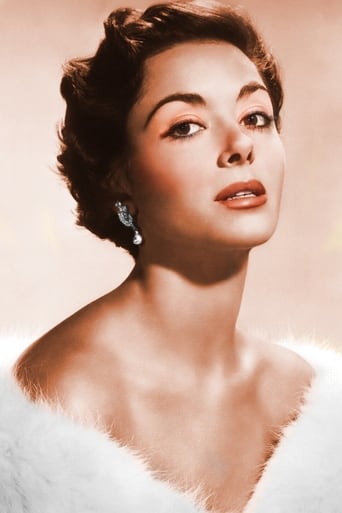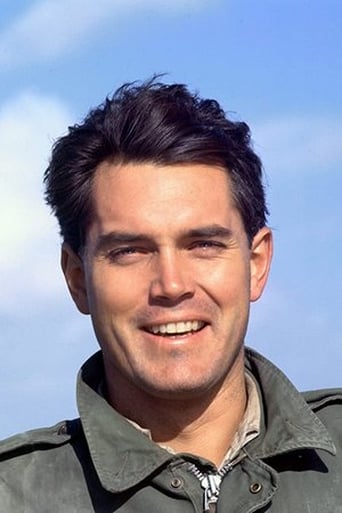In Love and War (1958)
Three Marines take shore leave in San Francisco during World War II. Frankie O'Neill visits his lower-class dysfunctional family; Nico Kantaylis visits his pregnant fiancée; and the upper-class Alan Newcombe visits his high-living playgirl girlfriend. Each must decide whether to make the best of his situation or break out of it. O'Neill drowns his troubles in alcohol, losing the respect of a potential lover; Kantaylis marries his fiancée, but realizes he may not survive the war to see his child; while Newcombe sheds his decadent girlfriend for a pure-hearted Hawaiian nurse. Later, in battle, a heroic act costs one of the Marines his life.
Watch Trailer
Free Trial Channels
Cast


Reviews
Sadly Over-hyped
In truth, there is barely enough story here to make a film.
If you're interested in the topic at hand, you should just watch it and judge yourself because the reviews have gone very biased by people that didn't even watch it and just hate (or love) the creator. I liked it, it was well written, narrated, and directed and it was about a topic that interests me.
This film is so real. It treats its characters with so much care and sensitivity.
"In Love and War" was one of that group of Hollywood films of the 1950's based on best selling novels about WW2. They were written by men who had experienced the war first hand: "The Young Lions", "Between Heaven and Hell" and "Battle Cry" among others. Being around 10 years of age at the time, they were the kind of movies I couldn't wait to see. However they usually had as much time devoted to the bedroom as to the battlefield - lots of mushy stuff. "In Love and War" wasn't kidding when it put 'Love' first in the title. At the time though, I thought Dana Wynter was about the most beautiful woman in the world - I'm not sure that I still don't.These days I can handle the mushy stuff better and actually appreciate it more than the rather bloodless, unrealistic action scenes that were the norm for those films. "In Love and War" had an overload of beautiful people. Along with Dana Wynter there was Robert Wagner, Jeffery Hunter, Hope Lange, Bradford Dillman, Sheree North and France Nuyen - stunning in her second movie.The story is about three marines from different backgrounds. Their lives reflect different levels of society, but there are problems all around: the spoilt rich girl bored with life (Dana), a bit of interracial tension (France Nuyen) and an evil stepfather for Robert Wagner's character. By 1958, anti-war sentiment was de rigueur - Brad Dillman's character rages against the senselessness of war. Unfortunately the various strands of the story seemed plucked from a file of alphabetically listed stock plots.The island the marines storm is unnamed. The author, Anton Myrer, was wounded serving with the marines on Guam, but the battle here seems to be representative, not specific.Many war films at the time combined documentary footage with the recreations, and it was never seamless. That was the case in this film despite a few gritty scenes. However they pale when compared to the 2010 mini series, "The Pacific"."In Love and War" has one element that pulls the whole thing together, a magnificent score by Hugo Friedhofer. It captures the heroism and tragedy of war, the epic along with the intimate. The score for this film is one of its stars.I can still enjoy this movie even if nostalgia plays a part. As for modern audiences, this is what a big glossy movie of the time looked like with stars who seemed better than life.
Wonderful acting by a superb cast, especially Robert Wagner, in a real breakout performance, as a Marine who comes home on leave to face a demeaning stepfather, abusive to both him, his younger brother and sister and his mother. He never lets her forget what her first husband was like while he totally demeans his eldest stepson.Jeffrey Hunter was also quite good as a guy coming home to wed his got in trouble girlfriend, Hope Lange, in one of her best performances as well to almost rival "Peyton Place." She begs him not to return to conflict in the same manner as Donna Reid pleaded with Montgomery Clift in "From Here to Eternity."Bradford Dillman is the third marine, from a wealthy family, whose father wanted to use his connections to get Dillman out of combat. Dillman must also contend with his fiancé, a very troubled, heavy drinking Dana Wynter, in also one of her finest performances. France Nuyen is the girl he ultimately falls for after a chance meeting in a hotel.The picture is ripe with prejudice, anti-war sentiment and all sorts of social ills brought out very well by this ensemble cast.
The story follows three marines, and their girls, from home leave to combat in the Pacific.The movie's very much a mixed package. With a couple exceptions, war films of the 1950's shied away from combat realism, whose trauma might easily overwhelm audiences. The second half of this war film does a pretty good job portraying the so-called fog of war, along with perfectly natural emotional and physical reactions to combat death. These scenes are done on exterior sets and are uglified to maximal extent. Such grim scenes are then intercut with sunny scenes in San Francisco, done in glowing candy box colors. The resulting contrast is appropriately jolting, to say the least, and leaves no doubt that between "love" and "war", which is to be preferred.The trouble lies with a swollen narrative that is too conventional in the "Love" part. It also shows what happens when a big studio, TCF, decides to promote a younger cast into possible stardom. Everybody—about the top seven in the cast list—gets cameo screen time, in the film's first half, especially. This draws out the runtime, and coupled with a conventional script, tends to drag out the first part, long after we've gotten the idea. The actors perform well enough, though O'Neill's (Wagner) drunken binge is over the top, maybe the only time in the actor's generally restrained career. Note, in passing, the post-war symbolism of pairing Newcombe (Dillman) with Kalai (Nuyen).All in all, the movie's a good look at how Hollywood shaped WWII to commercial needs of the big screen. But is otherwise forgettable.
Anton Myrer's novel, "The Big War," was published in 1957 with some degree of success and, not surprisingly, 20th Century-Fox bought the film rights. After all, World War II movies were a staple of this time and Myrer's novel provided a number of parts for those rising young performers then being groomed by 20th. The novel's three central Marine characters remained in Edward Anhalt's screenplay but their backgrounds were simplified, various supporting characters were eliminated, and the background for the domestic scenes shifted from the East Coast to California. Robert Wagner's back-story remains truest to the book. He has a doting mother and adoring younger siblings but fights with his hateful step-father. Bradford Dillman plays the rich, college-educated Marine and the movie sketches in his background but now gives him a drunken socialite of a fiancée, Dana Wynter, who's largely a screenwriter's invention. (His new girlfriend, France Nuyen, seems to have been inspired by another, unrelated character in the book.) Dillman's fate has also been re-written from Myrer's version. Jeffrey Hunter plays the conscientious Marine with the pregnant wife but his strained relationship with his mother-in-law goes unmentioned in the movie. (He does, however, get a bare-chest scene.) The second half of the movie shifts from homefront scenes in California to battle scenes in the Pacific. These scenes are done in a perfunctory style -- laced with occasional footage from actual World War II photographers -- and the actors' identities sometimes blur in those similar uniforms and under those metallic helmets. The result of all this is a glossy, mildly entertaining, but unmemorable movie which never rises above the "B" level of its "B" level performers. (Acting honors, such as they are, go to Sheree North as a practical-minded WAC.)

